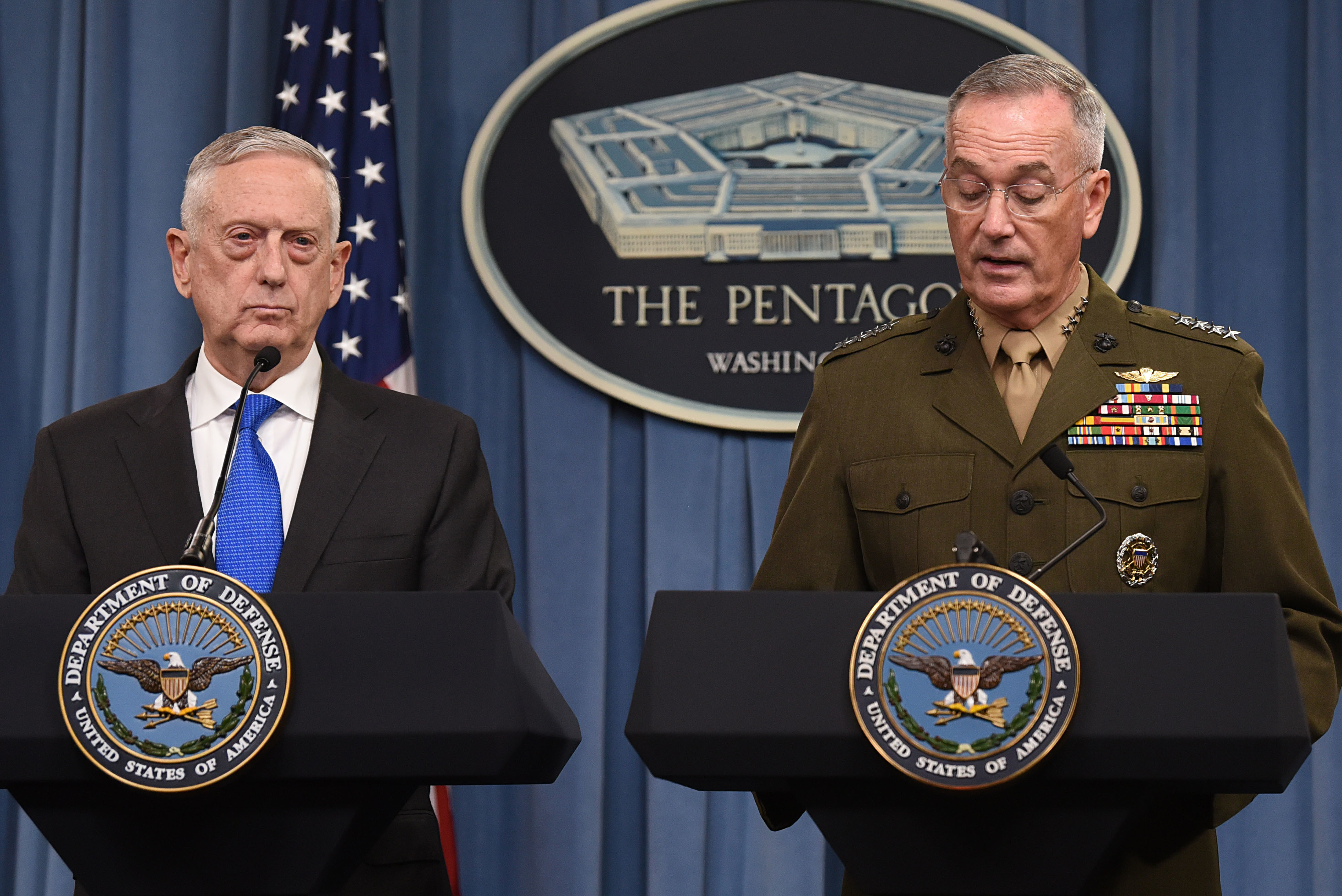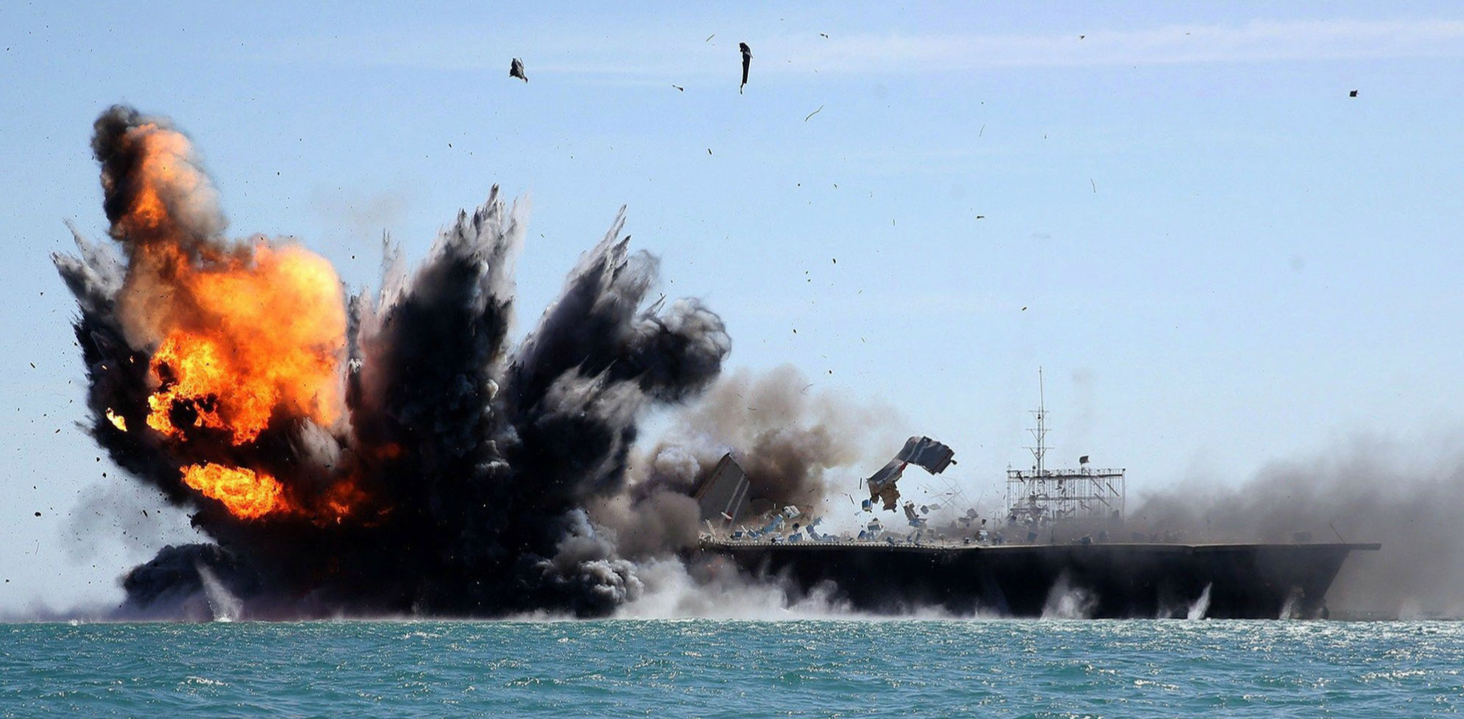
THE PENTAGON — The new commander of the Islamic Revolutionary Guard Corps Navy (IRGCN) claims the Strait of Hormuz is under Iran’s control, but Pentagon leaders say the U.S. Navy has no intention of altering any operations in the region.
Iranian forces are vigilantly controlling the country’s southern waters in the Persian Gulf and the Sea of Oman, Rear Admiral Ali Reza Tangsiri, head of the IRGCN, said during a Monday media briefing, according to news accounts.
“There is no place for foreign forces, like the U.S. Navy, in the Persian Gulf,” Tangsiri said, according to Tasnim News Agency, a pro-Islamic Republic outlet which has reportedly close ties to the IRGC.
In response, chairman of the Joint Chiefs of StaffGen. Joseph Dunford said during a Tuesday press briefing that the U.S. military has no plans to change activities in the region.
“For decades our forces have been postured in the Gulf to ensure freedom of navigation and will continue to do that,” he said.
Tangsiri’s comments, though, were likely made more for the benefit of the home audience than sending a message to the Pentagon, said Iran expert Afshon Ostovar, a professor in the Department of National Security Affairs at the Naval Postgraduate School and author of Vanguard of the Imam: Religion, Politics, and Iran’s Revolutionary Guards.

Tangsiri was appointed to his new role as head of the IRGC Navy last week, making his comments about foreign forces operating in the region his first major statement, Ostovar told USNI News.
“He needed to check all the important boxes with domestic and foreign audiences. Above all it’s a message of resolve,” Ostovar said. “Advancing that the Iranian navy is capable of providing security in the Persian Gulf for all states is an oft-repeated claim. To Iran’s leaders, this means that the U.S. naval presence is no longer needed in the region. They see this as a perfectly logical and convincing argument.”
The IRGC is intended to protect the integrity of Iran’s Islamic Republic system. The Islamic Republic of Iran Army (IRIA) is charged with defending the nation’s borders. In July, the IRIA Navy commander, Rear Admiral Hossein Khanzadi, made claims similar to his IRGCN counterpart’s about Iran’s control over the strait and its strategic importance to the global oil shipments. An estimated 2 million barrels of oil products transit the Strait of Hormuz daily, according to a statement made by Khanzadi in the state-run IRNA.
“The cruel sanctions being imposed on Iran will affect Strait of Hormuz functions,” Khanzadi said, referring to sanctions re-imposed by the U.S. in July.
By offering Iranian naval capabilities to their neighbors, Ostovar said this is Iran’s way of saying to them, “you don’t need the U.S. Navy, we can do everything they can do but better. Plus we’re locals, so you can trust us.”
“It’s a rich and particularly tone-deaf argument,” Ostovar said. “Iran’s neighbors want the U.S. in the Persian Gulf to protect them from Iran. Iran probably knows how ridiculous the claim is, from their neighbors’ perspective, but they advance it anyway, believing that the larger point about outsourcing security to a foreign power resonates regardless of how they feel about Iran.”

But the Iranian statements are not solely bluster. Ostovar said such statements included a “veiled threat that if the U.S. and its allies pursue a blockade of Iranian oil, Iran will respond in the maritime realm.”
Earlier in the month, Pentagon officials confirmed they were monitoring a large-scale Iranian naval exercise in the Persian Gulf. The exercise, reportedly involving 100 vessels, occurred at a time the U.S. did not have a capital ship operating in the region. Iranian officials at the time stated the exercise was conducted with the aim of controlling and safeguarding the security of the international waterway.
Speaking of the latest comments by Tangsiri, Ostovar said, “the assumption is that it’s a threat to block the Strait of Hormuz, but I wouldn’t read it that narrowly. Tangsiri is being ambiguous for a reason. He wants Iran’s adversaries to second-guess their assumptions of Iran’s potential behavior and imagine the variety of ways it could make life difficult for everyone.”





